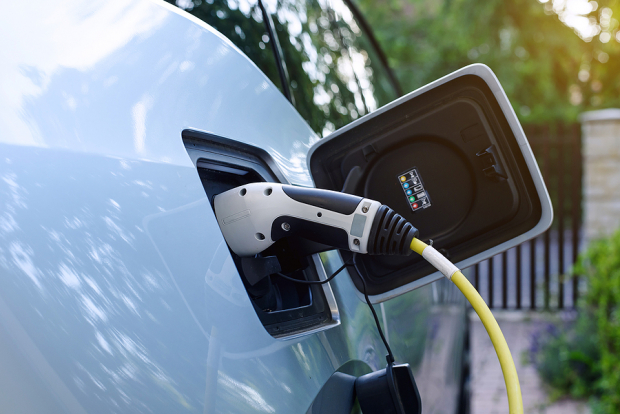
The electric vehicle (EV) market is fast becoming a new battleground for international trade, with the European Union (EU) and China facing a trade tariff showdown. Two weeks ago, the U.S. government quadrupled tariffs on China-made EVs to 100%, in a move aimed at countering what it sees as unfair pricing practices by Chinese manufacturers and protecting American jobs.
This aggressive stance has put pressure on the EU to consider similar measures. The EU is expected to announce a provisional list of import duties on Chinese EVs early next month, following an investigation — which began in October 2023 — into whether Chinese carmakers are benefiting from market-distorting subsidies in a way that harms European manufacturers.
However, given the dynamics of the EU-China relationship and the economic stakes involved, Europe might adopt a more constructive approach.
Economic Stakes for Both Parties
China’s EV industry is at a critical juncture. Overcapacity and intense competition have squeezed margins, making profitable exports essential, and Europe is a key market. According to the Rhodium Group, EU imports of EVs from China surged from $1.6 billion in 2020 to $11.5 billion in 2023, making up 37% of all EV imports in the bloc. Also, Chinese EV makers such as BYD Co Ltd BYDDY can sell their vehicles in Europe for more than twice the price they fetch in China.
Europe is not only crucial for sales but also for the global expansion of China-based companies. Several Chinese automakers are actively investing in Europe. For instance, BYD is building an EV plant in Hungary and is contemplating a second plant in Europe. XPeng XPEV forayed into France this month while NIO Inc. NIO announced the opening of its new showroom at the heart of Amsterdam. Chery Auto—China’s top vehicle exporter—is partnering with Spain’s EV Motors to establish a plant in Catalonia. State-owned SAIC is seeking a location for its first manufacturing plant in Europe. Moreover, the world’s largest battery maker, CATL, is ramping up production in Europe. All these developments underscore the strategic importance of the European market for China.
While NIO carries a Zacks Rank #3 (Hold), XPEV is #2 Ranked (Buy).
While NIO carries a Zacks Rank #3 (Hold), XPEV is #2 Ranked (Buy).
While NIO carries a Zacks Rank #3 (Hold), XPEV is #2 Ranked (Buy). You can see the complete list of today’s Zacks #1 Rank (Strong Buy) stocks here.
On the other side, European automakers are heavily reliant on the Chinese market. Germany-based companies like BMW AG BMWYY, Volkswagen VWAGY, and Mercedes-Benz generate significant revenues from China. For instance, BMW’s Chinese market accounted for nearly a third of its total sales in the first quarter of 2024. Italian-American automaker Stellantis has formed a joint venture with China’s EV startup Leapmotor to sell zero-emissions cars in Europe.
European automakers are also increasingly dependent on Chinese EV technologies and partnerships to bring cost-effective models to market swiftly. Volkswagen and BMW have pledged more than $5 billion to expand their research and production capabilities in China, highlighting the mutual dependencies in the EU-China automotive ties.
Potential Tariff Impacts
If the EU wants to deter Chinese EV exporters, the tariffs must be substantial. According to the Rhodium Group, tariffs would need to be in the 40-50% range to significantly affect Chinese EV exports to Europe. However, the EU is likely to consider potential countermeasures under World Trade Organization rules, which might limit tariffs to 15-30%. Even so, every additional 10% in tariffs would cost Chinese exporters approximately $1 billion. High tariffs could make the European market unattractive to Chinese manufacturers and potentially disrupt the balance of trade.
China has indicated that it might respond with tariffs on luxury car imports, which would primarily impact German manufacturers like BMW and Mercedes-Benz. A potential 25% tariff on luxury SUVs and sedans could significantly hurt these companies, which export high-end models to China. This possibility of a tit-for-tat escalation adds a layer of complexity to the EU’s decision-making process.
Negotiations May Offer Some Respite
Reportedly, the EU has extended its deadline to decide on China’s EV tariffs from Jun 5 to Jun 10 amid election concerns. Meanwhile, China is seeking to negotiate with the EU to avoid punitive tariffs, with talks expected to intensify as the deadline approaches. As we see, the stakes are high for both sides. For China, maintaining access to the European market is crucial to offset declining margins domestically and for Europe’s auto industry, maintaining good trade relations with China is vital due to its heavy reliance on Chinese sales and partnerships.
Closing Thoughts
It is a complicated scenario for the EU. On the one hand, it needs to address the concerns of its domestic EV industry, which faces competitive pressure from subsidized Chinese imports. And on the other, it must consider the broader implications of a trade war with China. The fear of a spiral of retaliatory tariffs also looms large. The EU is expected to opt for a more moderate tariff regime to protect its interests without provoking a full-blown trade war.
Want the latest recommendations from Zacks Investment Research? Today, you can download 7 Best Stocks for the Next 30 Days. Click to get this free report
NIO Inc. (NIO) : Free Stock Analysis Report
Volkswagen AG Unsponsored ADR (VWAGY) : Free Stock Analysis Report
Byd Co., Ltd. (BYDDY) : Free Stock Analysis Report
XPeng Inc. Sponsored ADR (XPEV) : Free Stock Analysis Report
Bayerische Motoren Werke AG Sponsored ADR (BMWYY) : Free Stock Analysis Report






